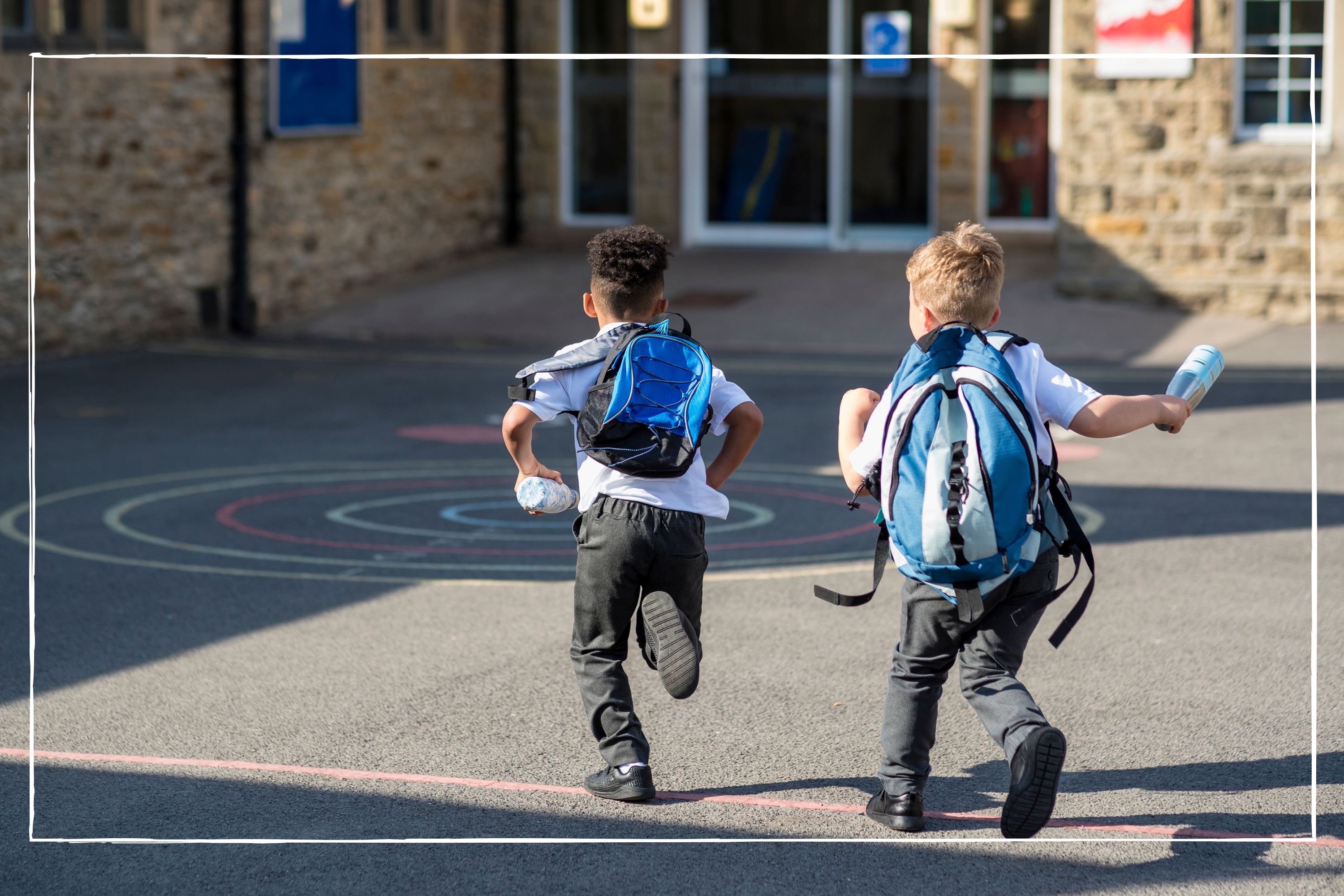How hot does it have to be for schools to close? Find out as temps are set to soar
How hot does it have to be for schools to close, it’s pretty hot right now…

Parenting advice, hot topics, best buys and family finance tips delivered straight to your inbox.
You are now subscribed
Your newsletter sign-up was successful
‘How hot does it have to be for schools to close’ is a hugely searched-for term - probably by parents and students alike - as the UK sweats through this heatwave.
Temperatures have been in the high 20’s for most of the UK all week and it’s only set to get hotter as we face potential temperatures of 36 degrees and more next week. And, with kids in schools it’s important to know the heat exhaustion symptoms and ensure sun creams are applied before school and during.
Temperatures have been high all week, some are speculating about the possibility of a hosepipe ban, while the NHS has issued a Level 3 health warning for some parts of England. Also known as an ‘amber alert’, level 3 is the second highest warning that the Heat-Health Alert Service can issue. The next is Level 4 which is classified as a ‘national emergency’. Just like parents ask how cold does it have to be for schools to close when temperatures plunge, many are now asking the same of the heat.
The heat only reinforces what a lot of Brits already know, we are not set up for this kind of extreme weather. Air conditioning isn’t the norm in schools, and as it gets hotter many are wondering; will schools close if it gets hotter.
How hot does it have to be for schools to close?
There is no set maximum temperature that will mean closure. Similar to workplaces there is a minimum temperature of 16 degrees before closure can be suggested as per the Government’s HSE (Health and Safety Executive) Approved Code of Practice. But historically in the UK hot days are so few and far between there’s been no need to set this out.
A DfE (Department for Education spokesperson) said; “There is clear Government guidance available online to help school staff look after children in the hot weather, including the use of ventilation, keeping children hydrated, and avoiding vigorous physical activity for pupils.
“Individual school leaders are responsible for managing their own local circumstances, but we are not expecting nor advising schools to close, and as always will continue working with local authorities to support schools and pupils.”
Parenting advice, hot topics, best buys and family finance tips delivered straight to your inbox.
While there is currently no law around maximum working temperatures the World Health Organisation recommends a maximum temperature of 24°C.
According to the Health and Safety Executive (HSE) guidelines: “During working hours, the temperature in all workplaces inside buildings shall be reasonable.” The HSE says that schools have to provide clean, fresh air as well as keep temperatures at a ‘comfortable level’. They are also expected to provide adequate shade and deploy special measures when necessary, such as fans or air conditioning.
In addition some secondary schools introduce relaxed uniform rules such as;
- No blazers
- No ties
- Button-down on shirts
But this will be up to your local school and will vary.
The National Union of Teachers says special measures should be put in place to reduce temperatures as soon as staff complain about feeling uncomfortable. A report stated: "If in doubt, 26C should be used as the trigger for these measures. Other steps may also need to be considered such as closing classrooms which are unacceptably hot and teaching classes elsewhere, or even sending pupils home, provided reasonable notice has been given to parents."
Parents should also make sure their kids are well equipped in a heatwave, with a hat and sunscreen if they are likely spend time outdoors.
What are my rights if my child is sent home because it's too hot?
Similar to a snow day, the school may announce it on their social media and/or local radio. When it comes to working parents some companies might choose to offer paid time off to staff, so it's worth checking with your employer. Though, employees do not have a statutory right to be paid in the event that they have an emergency day off with their children.
If school is closed parents are usually entitled to unpaid time off to look after the children.
How to stay safe during a heatwave?
- Stay hydrated.
- Keep a bottle of sunscreen with you to soak up those UV rays
- Wear a wide-brimmed hat to prevent sunstroke
- Avoid being outside during hottest hours of the day - from around 11am to 4pm.
- Stay in the shade where you can
- Keep windows closed when it is hotter outside than inside
You might also like:
How to cool a baby down in hot weather
This ice cream takes the longest to melt in a heatwave
Video of the Week:
Stephanie has been a journalist since 2008, she is a true dynamo in the world of women's lifestyle and family content. From child development and psychology to delicious recipes, interior inspiration, and fun-packed kids' activities, she covers it all with flair. Whether it's the emotional journey of matrescence, the mental juggling act of being the default parent, or breaking the cycle of parenting patterns, Stephanie knows it inside out backed by her studies in child psychology. Stephanie lives in Kent with her husband and son, Ted. Just keeping on top of school emails/fundraisers/non-uniform days/packed lunches is her second full-time job.